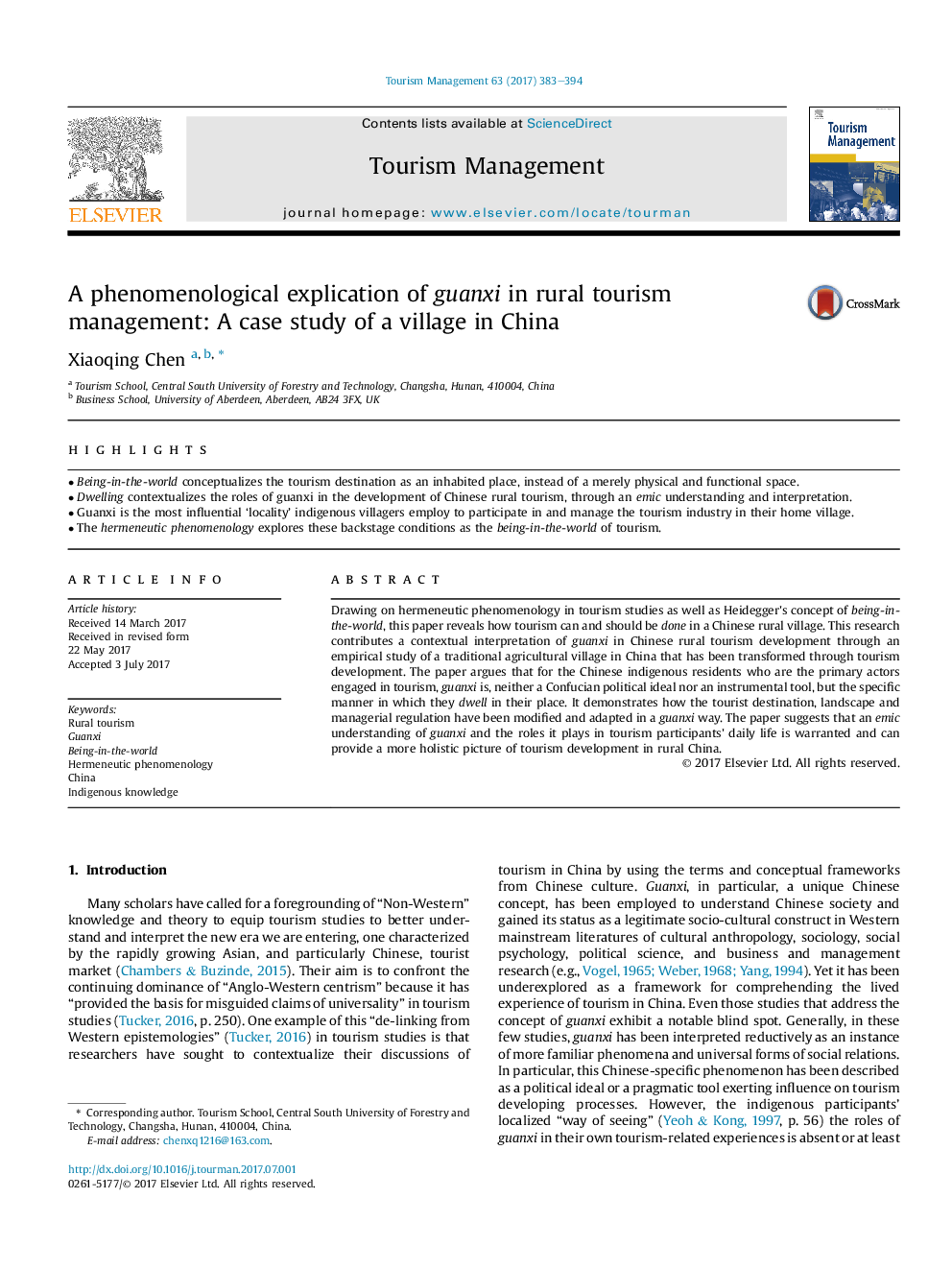| Article ID | Journal | Published Year | Pages | File Type |
|---|---|---|---|---|
| 5108558 | Tourism Management | 2017 | 12 Pages |
Abstract
Drawing on hermeneutic phenomenology in tourism studies as well as Heidegger's concept of being-in-the-world, this paper reveals how tourism can and should be done in a Chinese rural village. This research contributes a contextual interpretation of guanxi in Chinese rural tourism development through an empirical study of a traditional agricultural village in China that has been transformed through tourism development. The paper argues that for the Chinese indigenous residents who are the primary actors engaged in tourism, guanxi is, neither a Confucian political ideal nor an instrumental tool, but the specific manner in which they dwell in their place. It demonstrates how the tourist destination, landscape and managerial regulation have been modified and adapted in a guanxi way. The paper suggests that an emic understanding of guanxi and the roles it plays in tourism participants' daily life is warranted and can provide a more holistic picture of tourism development in rural China.
Related Topics
Social Sciences and Humanities
Business, Management and Accounting
Strategy and Management
Authors
Xiaoqing Chen,
